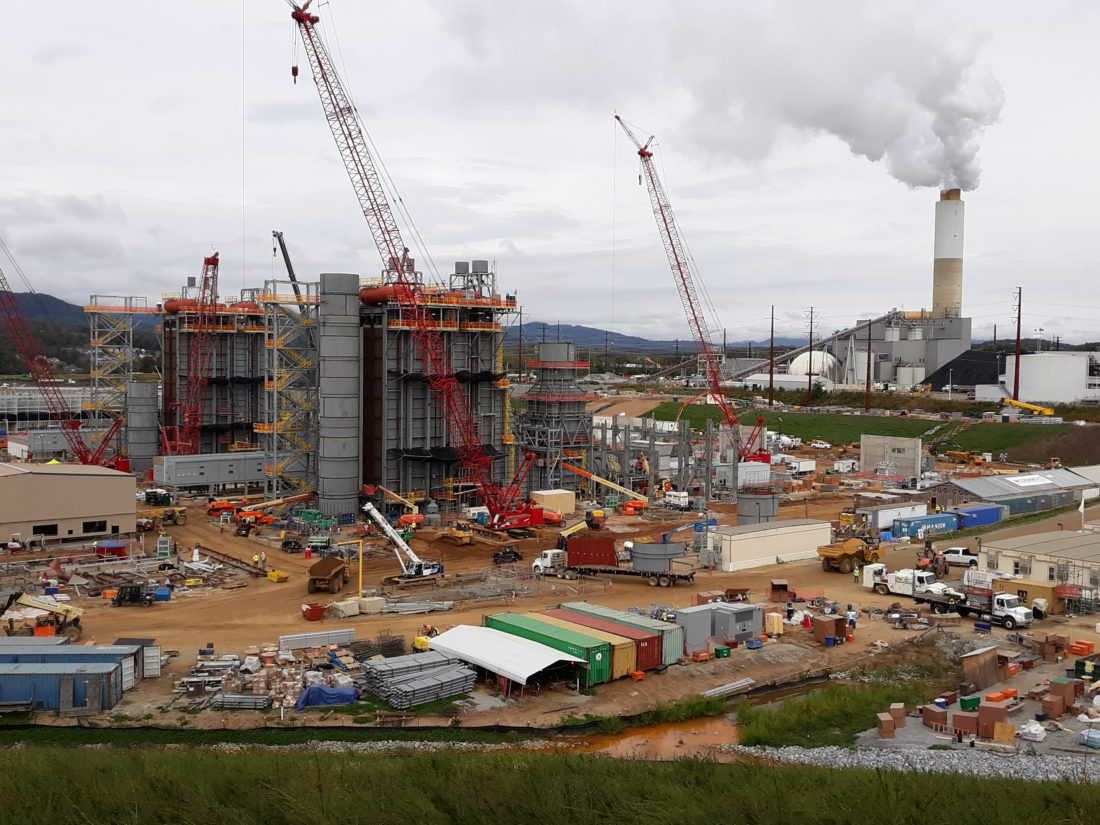Twelve years: That’s how long humanity has left to hold global warming below the key level of 1.5 degrees Celsius, according to an October report by the U.N. Intergovernmental Panel on Climate Change. In light of that sobering reality, these developments from 2018 had the biggest potential impact on Asheville’s contribution to climate change.
- Duke Energy continues construction on gas-fired power plant: The utility is replacing its current coal-fired facility at Lake Julian with a 560 megawatt gas plant, which is projected to produce 60 percent fewer carbon dioxide emissions per megawatt-hour of electricity generated. However, some local environmental groups have criticized the plant as locking the area into a fossil-fuel future instead of investing boldly in renewable energy.
- Buncombe County begins implementing 100 percent renewable goal: County staff began exploring ways to meet the ambitious goal ratified by the Board of Commissioners in December 2017. Through energy use reduction, solar panel installation, electric vehicle use and other strategies, the county aims to run all government operations on renewable energy sources by 2030 and run all operations in the community on renewable energy by 2042.
- City of Asheville passes 100 percent renewable goal: At the behest of its Sustainability Advisory Committee on Energy and the Environment, Asheville City Council affirmed its own renewable energy target on Oct. 23. Although the resolution does not include energy use outside of government operations, it sets 2030 as the date for Asheville to complete its renewable transition.
- Local schools grow their sustainability degree programs: Area colleges stepped up their efforts to train students in the necessary skills for transitioning away from a carbon-based economy. Warren Wilson College, for example, signed a partnership agreement with other schools allowing its students to complete a sustainability-related master’s degree on an accelerated five-year track.
- Energy Innovation Task Force enters action phase: In March, the partnership involving Asheville, Buncombe County and Duke Energy rolled out a pilot project to increase participation in energy efficiency programs. The EITF aims to reduce electricity demand such that Duke will not have to build a planned “peaker” power plant in 2027.
- Citizen groups continue push for change: From the Citizens’ Climate Lobby’s advocacy of a national carbon fee-and-dividend policy to 350 Asheville’s renewable energy forum in May, Asheville residents didn’t let up in their work on climate issues. Perhaps the most visible action was a 10-day public fast and prayer at the Vance Monument before Thanksgiving that called attention to the changing climate in the tradition of leaders such as Martin Luther King Jr. and Gandhi.
- The Collider debuts conferences for climate-conscious businesses: The downtown climate business accelerator hosted its first ClimateCon in March, drawing national attention to Asheville’s efforts in the sector. The [Food + Beverage] Collider conference in October took an even tighter focus, addressing how companies with agricultural supply chains can mitigate climate risk.




The climate just continues to change … as expected.
They forgot the (SATIRE) disclaimer on this one.
Too bad they weren’t around when glaciers were covering part of North America, they could have made a difference…
I love how people like you seem to suggest that because the climate has changed in the past that we do nothing to prevent it’s change now. I daresay that is the stance of a coward!
Too bad they’ve removed the concept of “conserve” from conservatism.